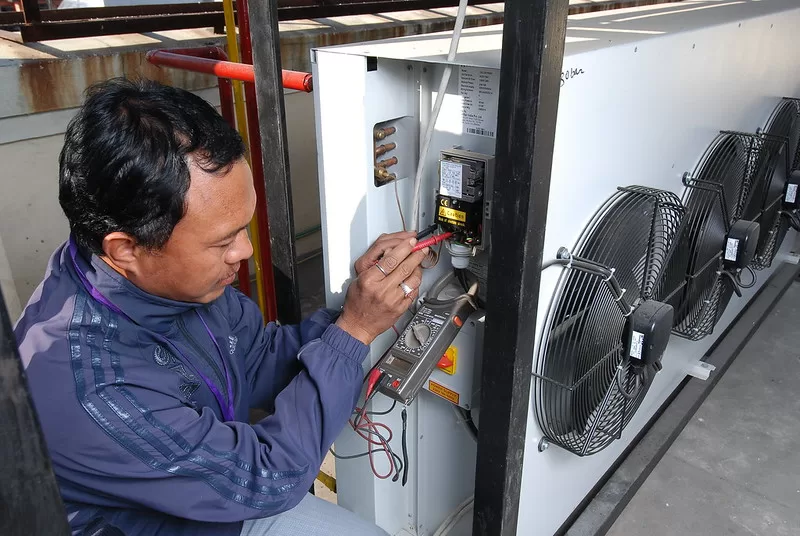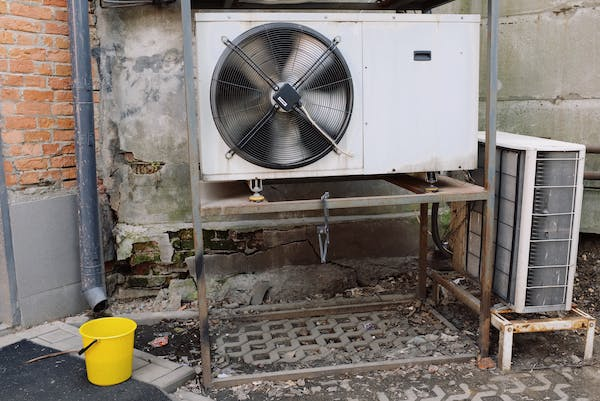Short cycling happens when your air conditioner starts kicking on and off every few minutes, leading to higher energy bills, more frequent AC repairs, and eventually a shorter lifespan for the unit.

While this problem is common for homeowners, it is not normal for your unit to do this. It usually indicates that something is wrong!
One of the primary sources of problems in HVAC units is refrigerant leakage. For this to be remedied effectively, you need the services of an expert HVAC company to detect and address it.
Don’t let short cycling or refrigerant issues ruin your AC experience – reach out to the pros at River Valley for reliable solutions!
Thermostat Issues
Your air conditioner turning off by itself often indicates that something is amiss in its internal workings and likely requires repair services from an experienced professional.
A malfunctioning thermostat sensor is one of the primary causes of your AC unexpectedly turning off. If it doesn’t accurately reflect your home’s temperature to your system, it could continue to shut down because its cycle will never end.
Faulty run capacitors may also contribute to short cycling in your air conditioning unit. This component gives your system an initial power boost when starting up, and any damage could lead to other parts breaking down due to increased wear and tear.
Read Also:
Electrical Issues
If your air conditioner keeps shutting off unexpectedly, electrical problems could be to blame. A capacitor – commonly called the run capacitor – supplies energy from the motor that runs your AC to its running engine, and if that wears down or breaks down, it will stop functioning, and your air conditioning won’t work.
You can test it by going outside and pushing on the fan with something long like a stick (being careful not to interfere with your hands!) If a humming noise emanates from it, it indicates its failure. Thus, your capacitor may have failed and needs replacing.
Attic heater issues and electrical connections may also cause your air conditioning unit to turn on and off randomly. Hence, a qualified electrician must be called in as they have the training and tools to diagnose wiring and circuit issues.
Other Issues
Air conditioning systems may encounter mechanical or structural issues beyond electrical glitches and refrigerant leakage. Short cycling, for instance, occurs when cooling cycles end prematurely before turning back on again, causing short cycling issues.
An air filter that has become clogged may cause frost to grow on the evaporator coils of your air handler, restricting how much air passes through and thus forcing the air conditioner to turn itself off.
ACs that keep turning off could also be due to a clogged drain line, which collects any extra moisture that accumulates inside your air conditioning unit.
When this drain is blocked up, excess moisture cannot flow freely out of your system and could lead to other complications in its path, leading to premature shut-offs.
Refrigeration leaks also cause your air conditioner to turn off as low pressure decreases. Still, as soon as the pressure increases, they turn back on quickly, causing short cycling, increasing electricity bills and wear-and-tear on your system.
Your air conditioner could also have a run capacitor issue that intermittently supplies power to its circuit board and thermostat, leading it to shut off randomly while trying to balance pressure.









